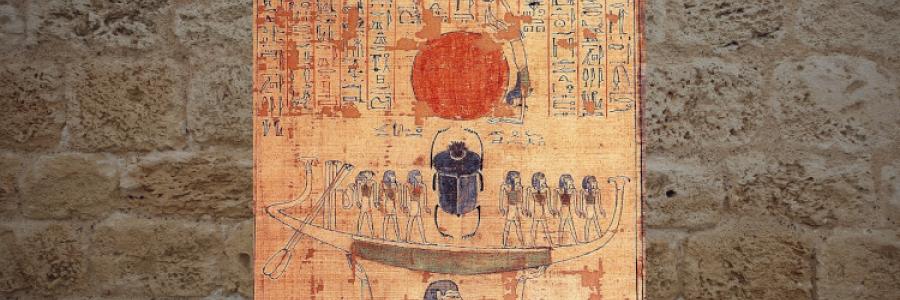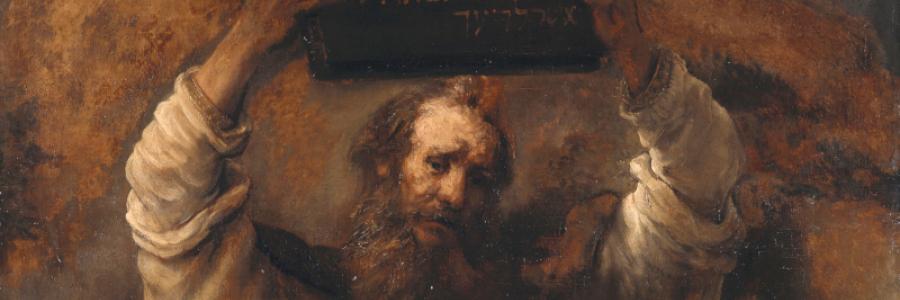Babylonian Ark Tablet Echoes Genesis: The Animals Went in Two by Two
Body
“Finkel was shocked by the rare cuneiform signs sana in the passage describing the animals on the boat. Sana is listed in the Chicago Assyrian Dictionary as ‘Two each, two by two.’” - Biblical Archaeology Society
Discussion
The Bible and Ancient Near Eastern Mythology
by Paul Miles
Mythological hermeneutics is a growing threat to evangelicalism today. The notion is that Genesis does not give a literal account of human origins, but is a monotheistic rearrangement of pagan texts from the Ancient Near East and therefore is subject to error. If this accusation were coming only from atheists or even progressive Christians, it would be unfortunate; but mythological hermeneutics is infiltrating evangelicalism, so we need to equip ourselves with responses.
Discussion
Does Monotheism Predate Polytheism?
Body
“…starting in the early twentieth century, archaeologists began to uncover clues….The earliest pictographs, hieroglyphics, cuneiform, or runic writings of discovered or excavated cultures pointed to an original monotheism which became more and more corrupted into animism or polytheism” - AiG
Discussion
Was Moses a Plagiarist?
Archaeologists discovered several ancient Near Eastern law codes in the first half of the twentieth century. Many of the laws contained in these codes bear a striking resemblance to some of the Mosaic laws of the Old Testament. This fact has forced Old Testament critics to revise their late date for the Pentateuch (Albright, 109). But the relationship between Mosaic Law and the ancient Near East legal codes has also given rise to another form of criticism. Modern critics argue that Moses (or whoever authored the Pentateuch) received his laws from his ancient Near Eastern neighbors.
Discussion
Crushing Rahab: Does the Old Testament Borrow from Myth?
Body
“If Ancient Near Eastern mythology controls our interpretation, we’ll conclude that biblical authors conceived of Yahweh defeating a mythological monster known as Rahab to overcome chaos and create the world.” - TGC
Discussion
The Creation Narrative - Genesis 1 & 2 (Part 10)
Read the series so far.
Adam Is Tested
In the next section (2:15-17) we read of God giving the man a straightforward command:
Of every tree of the garden you may freely eat; but of the tree of the knowledge of good and evil you may not eat, for in the day that you eat of it you shall surely die.
The tree of the knowledge of good and evil was an actual tree. It is not called a symbol and need not be seen as one. I agree with Merrill that we should not think of “good and evil” in this place as contrasting values so much as an idiom for comprehensive knowledge.1 Certainly, ethical knowledge would be included, since all knowledge bears an ethical stamp, but the innocence of our first parents does not at all lead us to think they were ignorant of the meanings of the terms “good” and “evil.” God is communicating meaningfully to Adam, not speaking over his head. Every word which God speaks to Adam presupposes his ability to receive and comprehend it. Thus, the expression “to freely eat” was just as well understood as the designation “every tree of the garden.” Again the warning “in the day you eat of it you shall surely die” was God speaking to a comprehending and responsive creature. He was not speaking into the air.2





Discussion